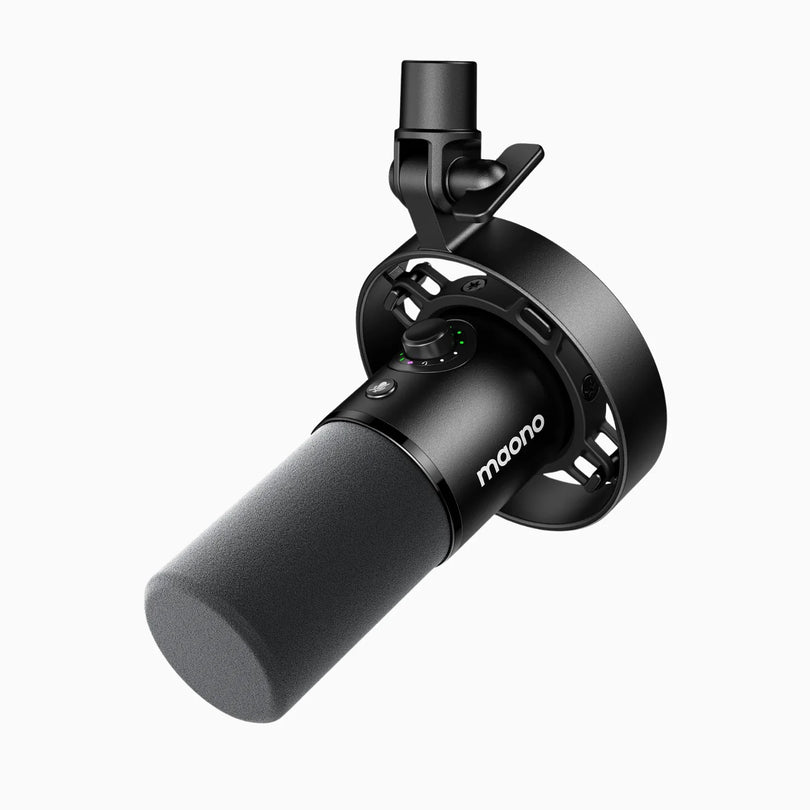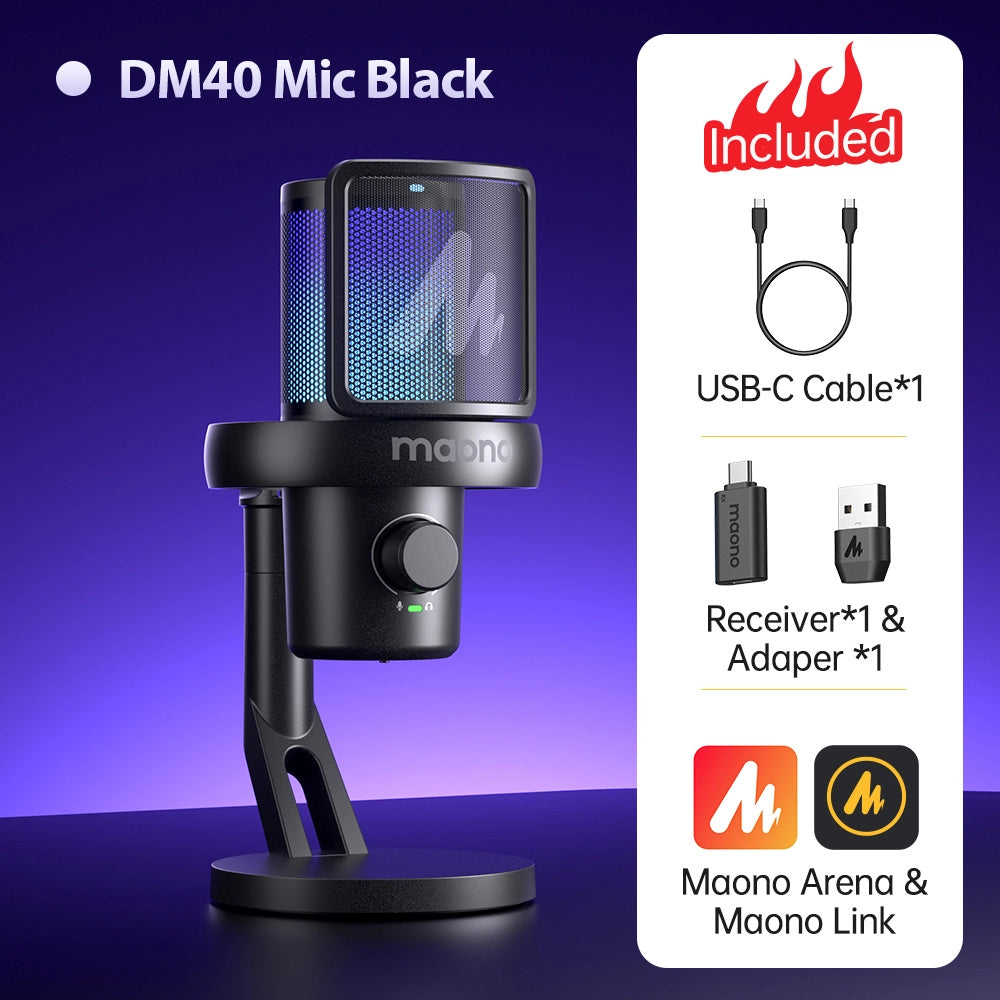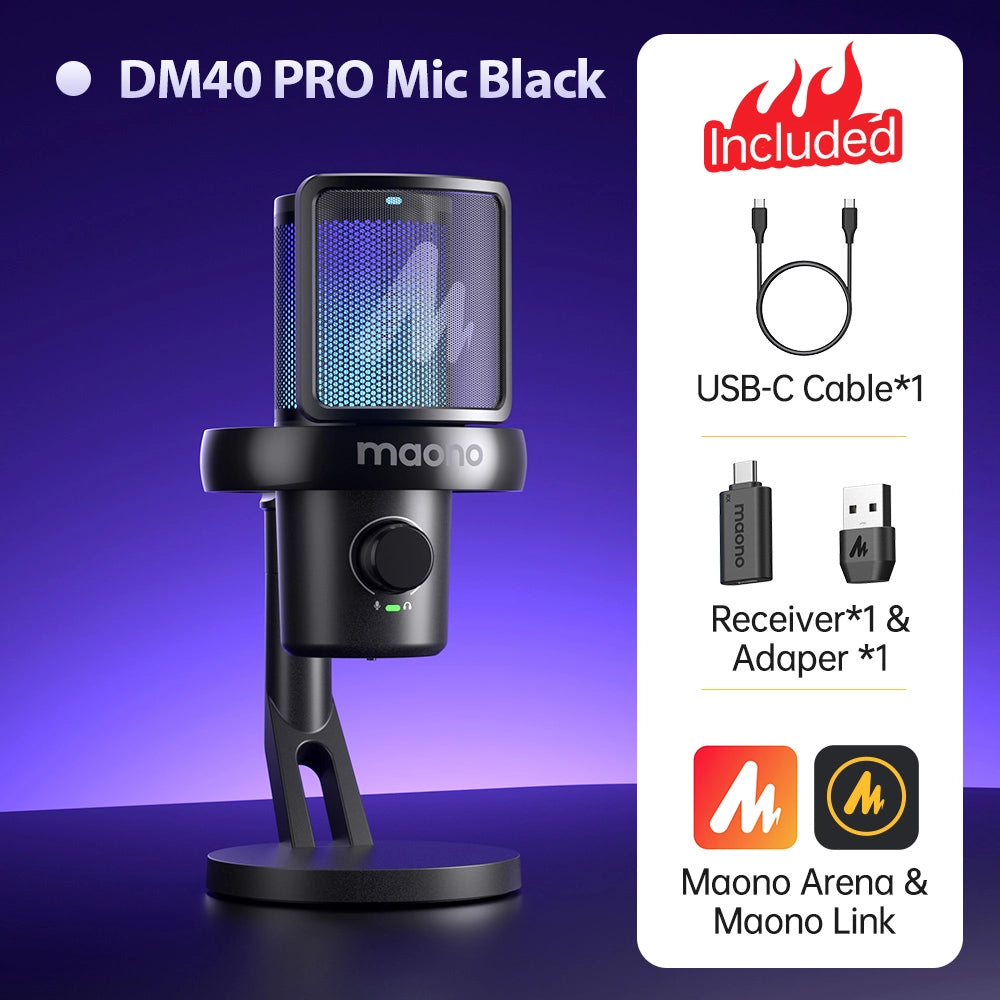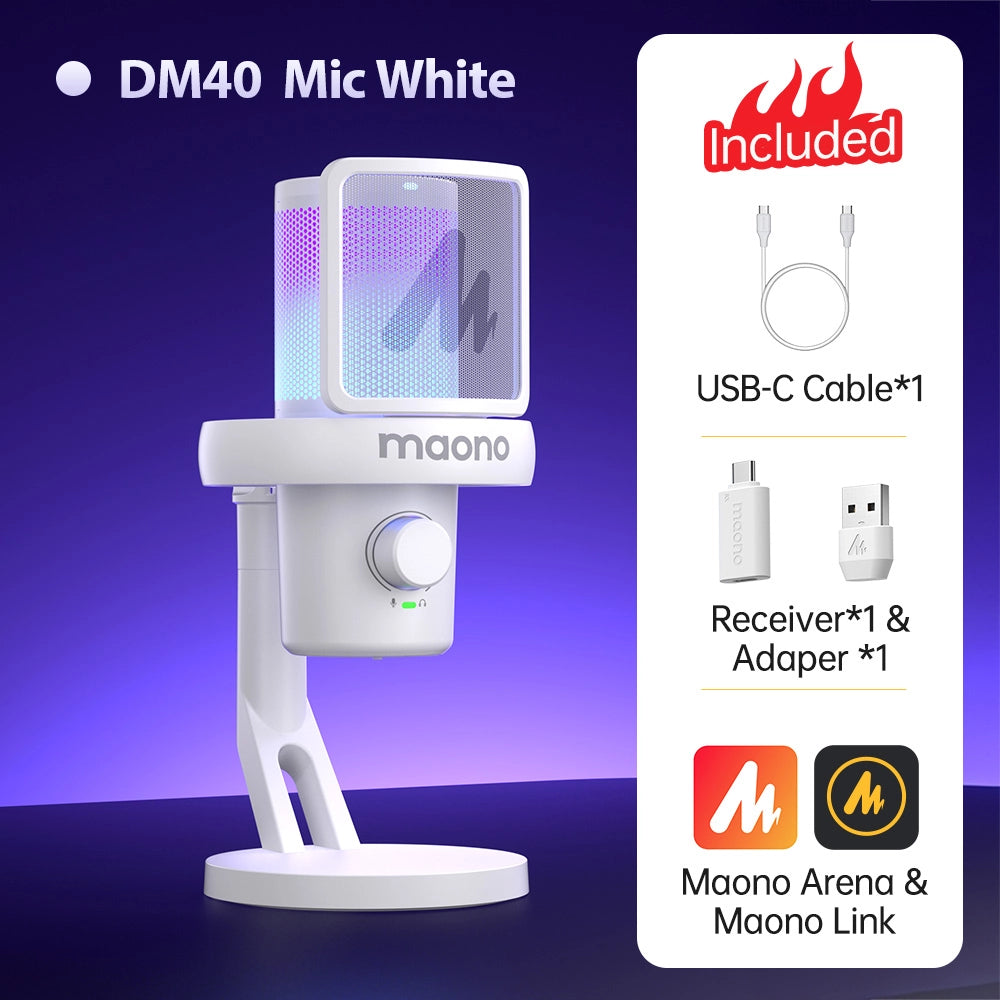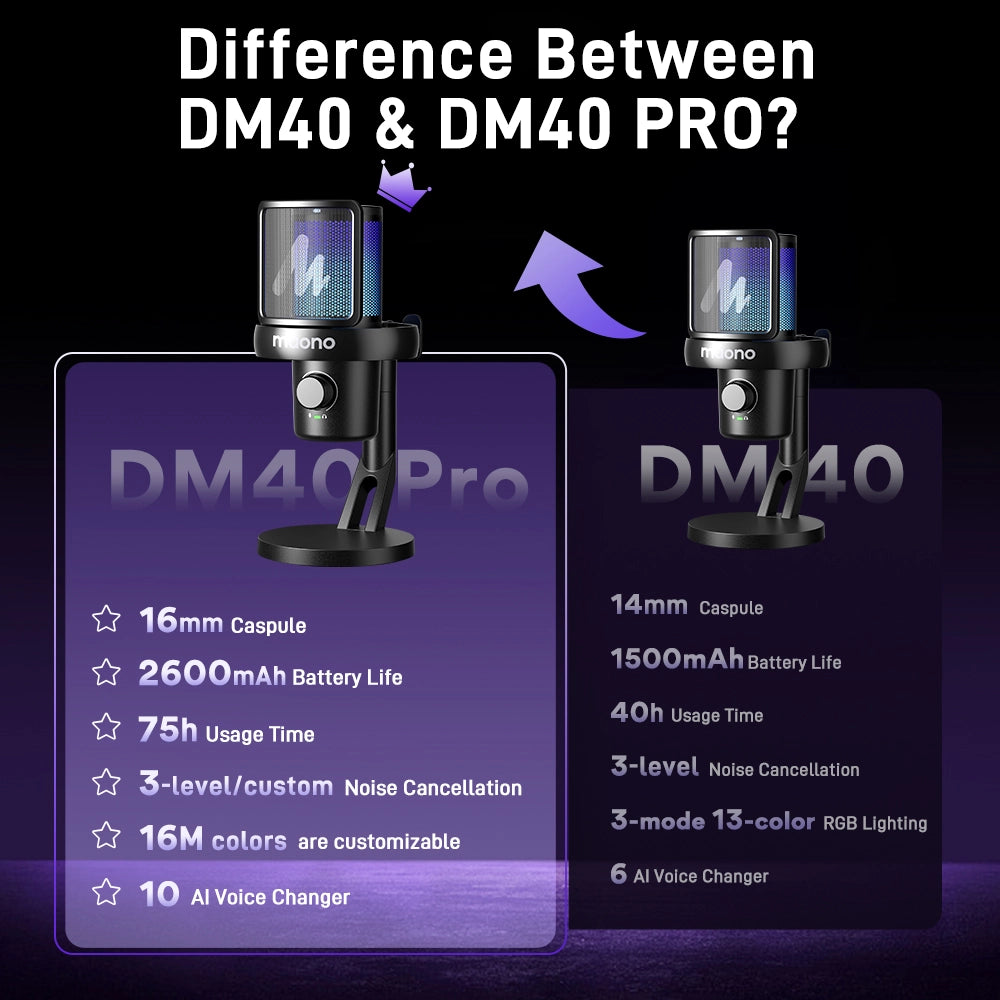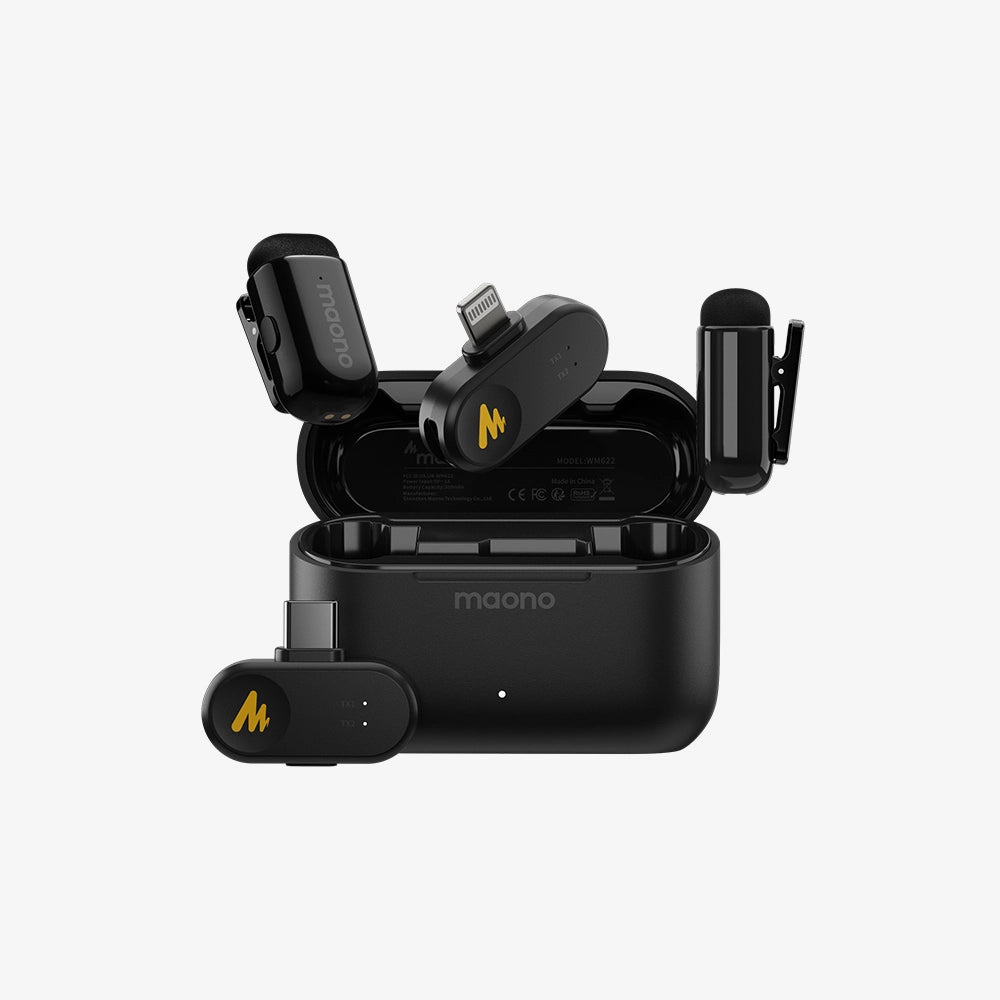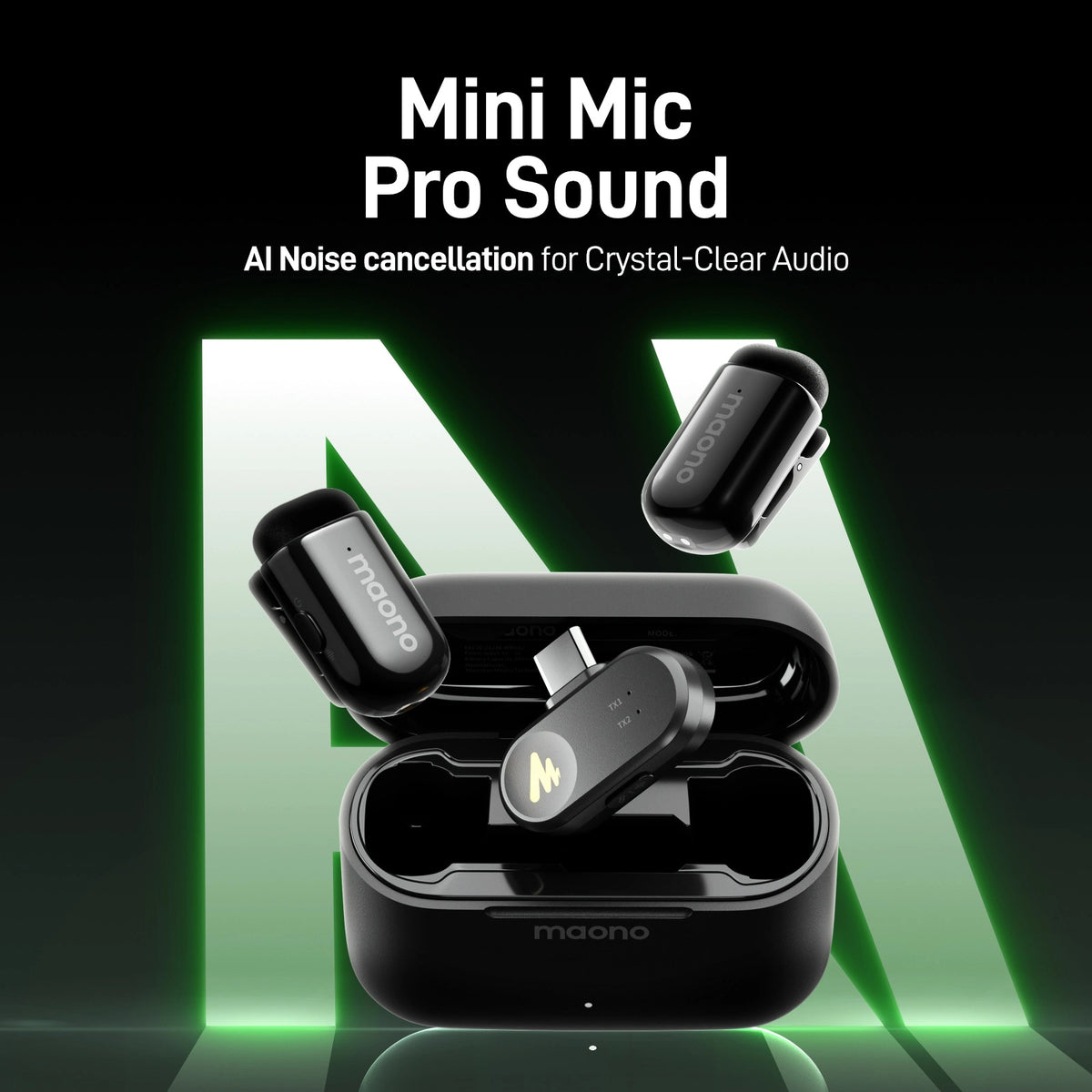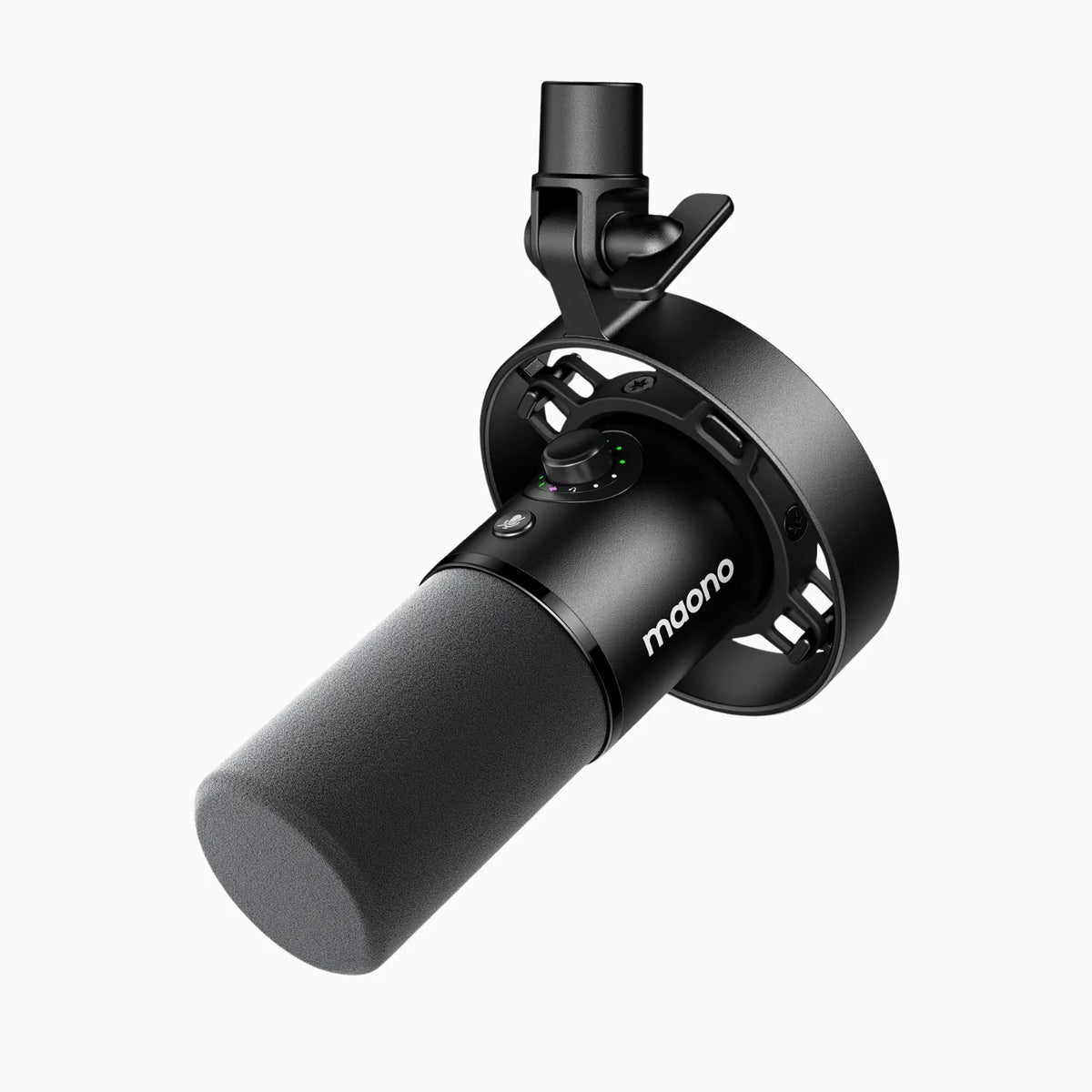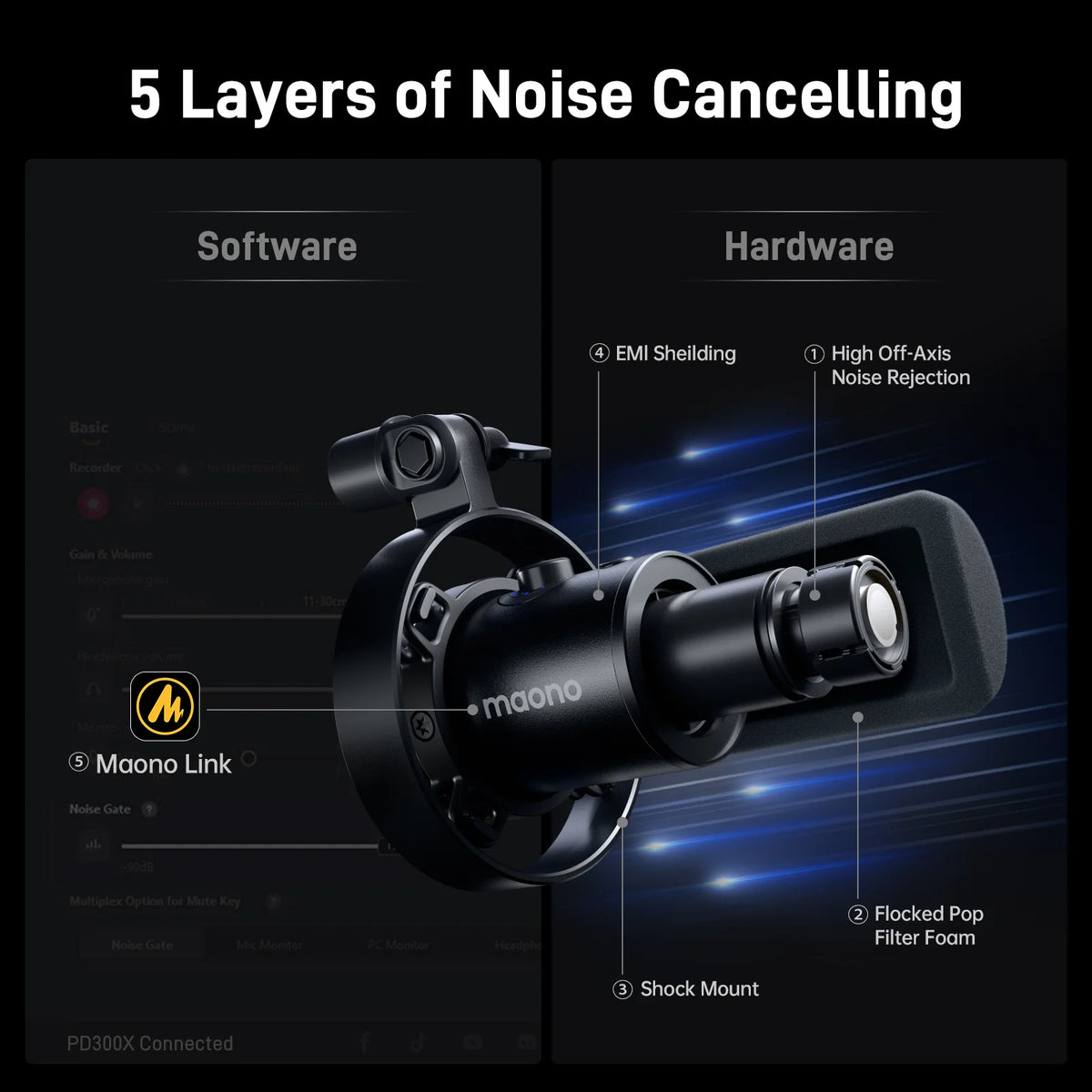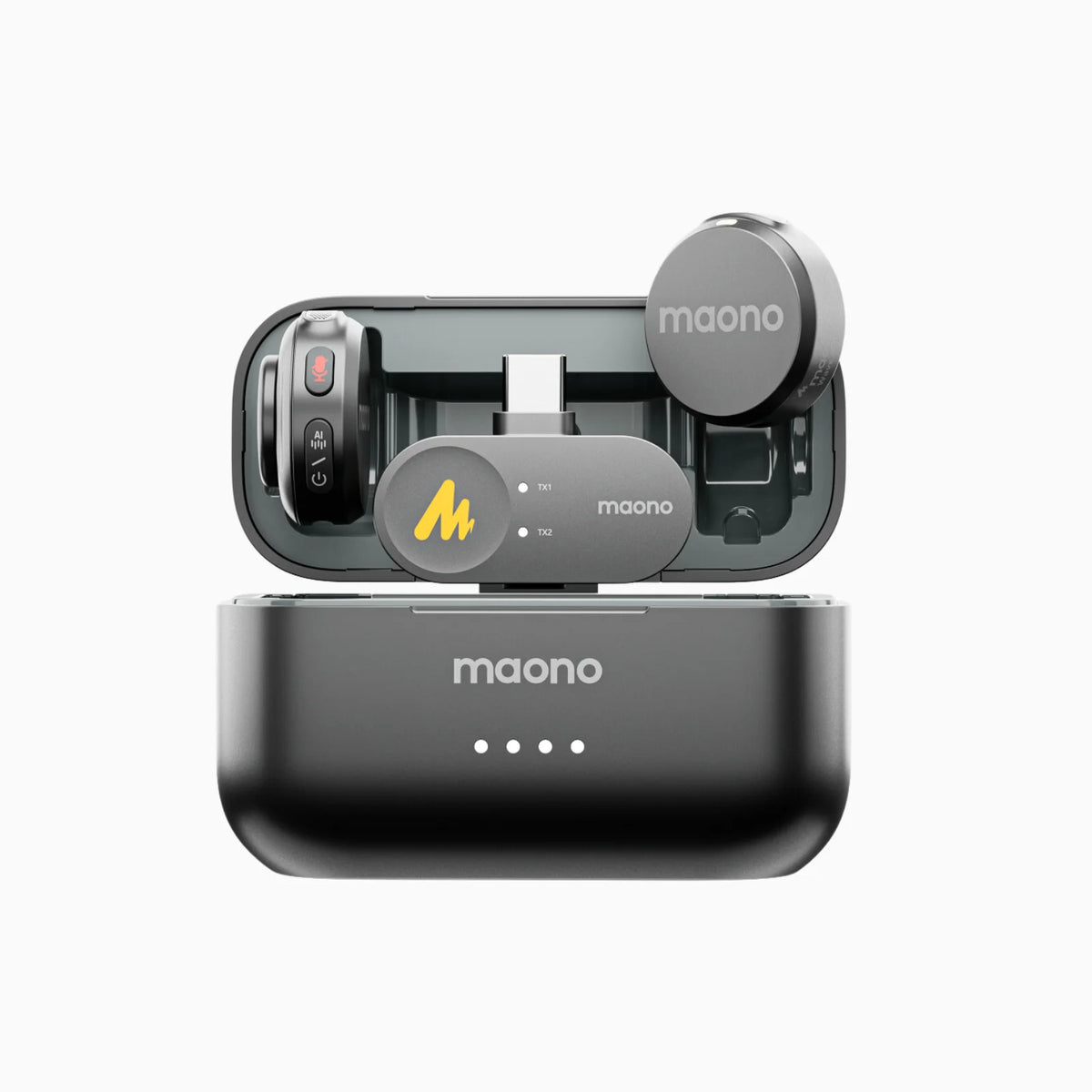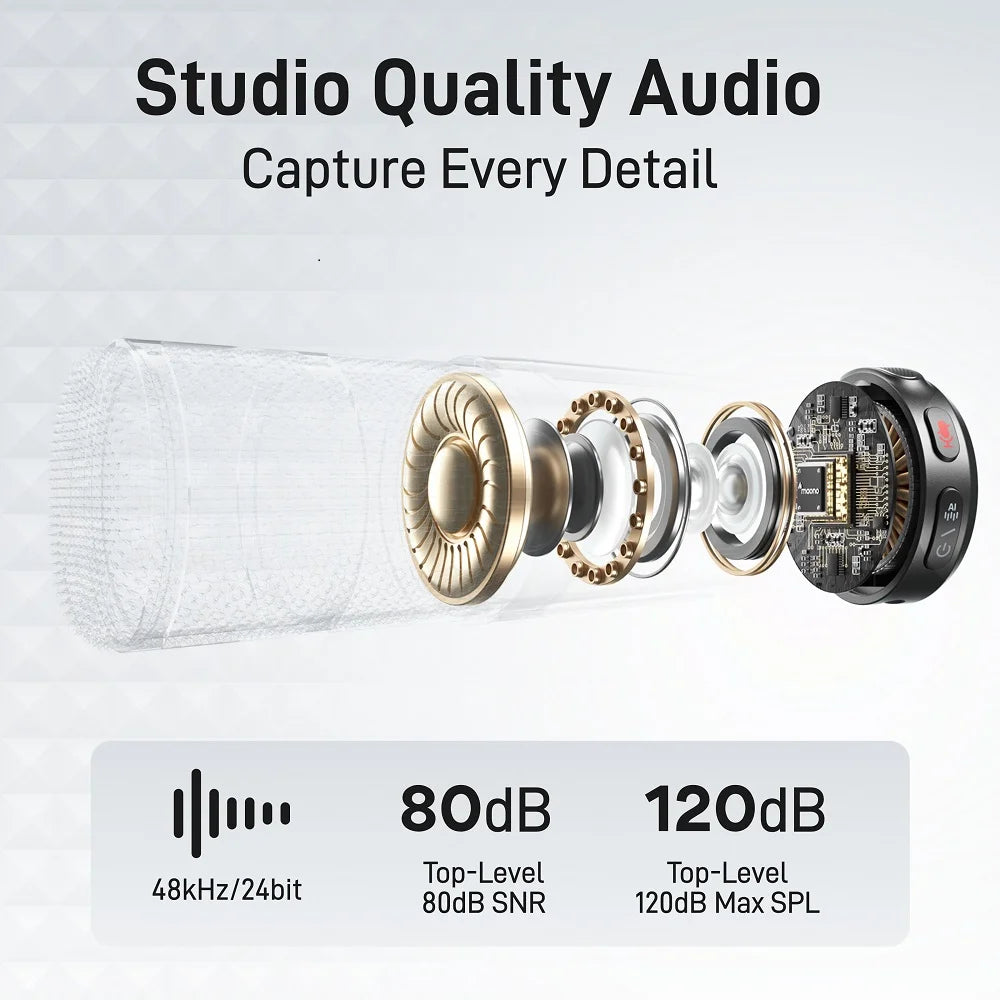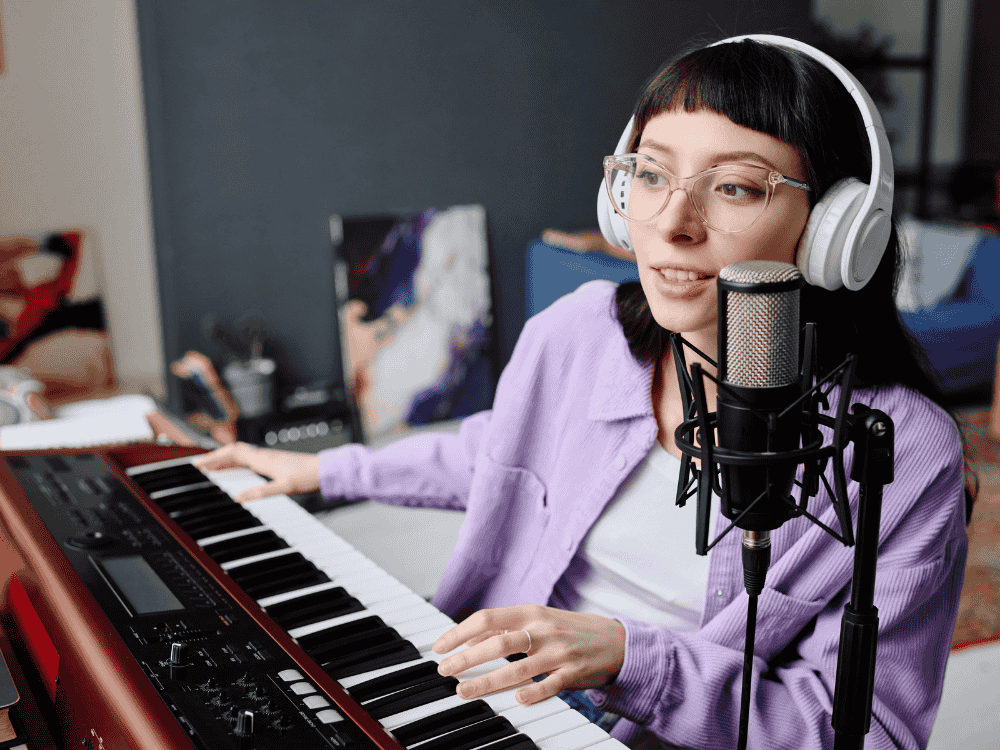The start of a new year is the perfect time for singers to refine their craft, and selecting the right recording microphone is a pivotal step in achieving professional-grade vocal recordings. Whether you're a seasoned vocalist or just starting out, understanding different vocal techniques can help you choose a microphone that complements your style. For instance, pop vocalists often require crisp and detailed clarity, while classical singers benefit from microphones that capture dynamic nuances. Rock singers, on the other hand, need rugged microphones that handle high sound pressure levels without distortion. With these techniques in mind, let's explore the ideal microphones for recording vocals in 2025.
What Type of Microphone Should You Use to Record Audio in a Home Studio?
What type of microphone should you use to record audio at home? Recording audio at home requires careful consideration of your equipment. Two primary types of microphones dominate the home studio scene: condenser microphones and dynamic microphones.
- Condenser Microphones
These are highly sensitive and excel at capturing detailed nuances of vocal performances. They're ideal for controlled environments like home studios. Examples include the Maono PM461 and AKG C414 XLII.
- Dynamic Microphones
Built for durability, dynamic microphones are less sensitive to background noise, making them great for untreated spaces. The Shure SM7B, known for its warm tone, is a stellar choice for rock and spoken-word recordings.
For home studios, condenser microphones are typically preferred due to their ability to capture intricate details, especially in quieter, acoustically treated spaces.
Why Does My Microphone Delay in Recording?
Why does my microphone delay in recording? Microphone delay, also known as latency, can frustrate even the most patient of vocalists. Latency occurs when the analog signal from your microphone is converted to digital and processed by your recording software. Here are some common causes and solutions:
1. Audio Interface SettingsHigh buffer sizes in your digital audio workstation (DAW) can lead to delays. Lower the buffer size for real-time monitoring.
2. Connection TypeUSB microphones like the Maono A04 may introduce more latency than XLR microphones connected to a high-quality audio interface.
3. Computer PerformanceAn underpowered computer may struggle to process audio efficiently. Upgrading your RAM or CPU can help.
4. Drivers and FirmwareEnsure that your audio interface and DAW are running the latest versions for optimal performance.
By addressing these issues, you can minimize latency and enjoy a seamless recording experience.
What is the Best Microphone for Recording Vocals?
Choosing the best microphone for recording vocals depends on factors such as your budget, vocal style, and recording environment. Below are six top microphones for recording vocals in 2025:
1. Maono PM461
- Type: Condenser USB Microphone
- Features: The Maono PM461 features a plug-and-play design, cardioid polar pattern, built-in pop filter
- Why It’s Great: Affordable and beginner-friendly, this mic delivers clear audio with minimal background noise.
2. Maono A04

- Type: Condenser USB Microphone
- Features: Wide frequency response, shock mount, and compatibility with most recording software
- Why It’s Great: The Maono A04 microphone offers professional-grade audio at a budget price, perfect for podcasters and vocalists alike.
3. Rode NT1
- Type: Condenser XLR Microphone
- Features: Extremely low self-noise, wide dynamic range
- Why It’s Great: This studio staple captures rich, detailed vocals suitable for all genres.
4. Shure SM7B
- Type: Dynamic XLR Microphone
- Features: Flat, wide-range frequency response, excellent noise rejection
- Why It’s Great: Ideal for vocalists with powerful voices, this mic ensures warm and smooth recordings.
5. AKG C414 XLII
- Type: Condenser XLR Microphone
- Features: Multiple polar patterns, unmatched clarity
- Why It’s Great: A premium choice for professionals, this microphone excels in capturing every nuance of a performance.
6. Neumann TLM 103
- Type: Condenser XLR Microphone
- Features: Ultra-low self-noise, cardioid pattern
- Why It’s Great: Known for its crisp and clean sound, this mic is perfect for solo vocal recordings.
What is the Best Recording Microphone You Recommend I Should Buy This New Year?
If you're looking for a versatile microphone to start 2025 on a high note, the Rode NT1 is an excellent choice. Its low self-noise and rich tonal quality make it suitable for a wide range of vocal styles. For those on a budget, the Maono PM461 offers impressive performance at an affordable price. If you're a professional seeking the pinnacle of audio quality, the AKG C414 XLII should be your top pick as the best recording microphone for vocals.
FAQs:
How Do I Choose a Microphone Based on My Vocal Style?
- Pop Vocals: Look for microphones with enhanced high frequencies to add sparkle to your voice. The AKG C414 XLII is an excellent choice.
- Classical Vocals: Choose microphones with a flat frequency response to capture natural tones, such as the Rode NT1.
- Rock Vocals: Opt for durable microphones that handle high SPLs, like the Shure SM7B.
How Does a Microphone Polar Pattern Affect Vocal Recording Quality?
A microphone’s polar pattern determines how it picks up sound:
- Cardioid: Focuses on sound directly in front of the microphone, minimizing background noise. Ideal for solo vocals.
- Omnidirectional: Captures sound from all directions. Best for group recordings or live performances.
- Figure-8: Records sound from the front and rear. Useful for duets or multi-instrument setups.
For most vocal recordings, a cardioid pattern is preferred as it isolates the voice and reduces room noise.
How Does Microphone Sensitivity Affect Vocal Recordings?
Microphone sensitivity refers to how well a microphone converts sound into an electrical signal. High-sensitivity microphones, like the Maono A04, capture subtle details, making them ideal for quiet or expressive vocals. Low-sensitivity microphones, such as the Shure SM7B, are better suited for loud environments or strong vocal performances. Understanding your recording needs will help you choose a microphone with the appropriate sensitivity.




